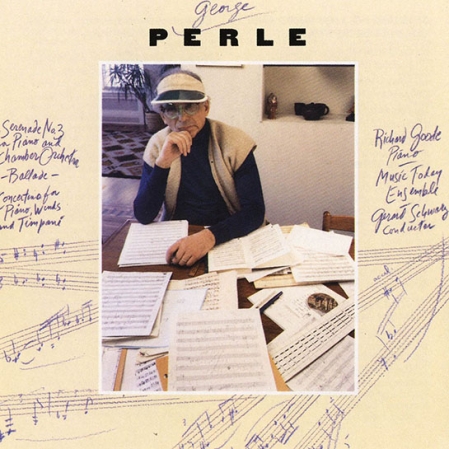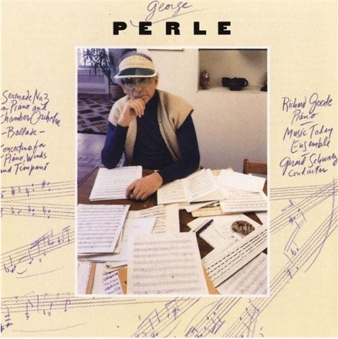Pulitzer Prize–winning composer George Perle was born in 1915 in Bayonne, New Jersey, and died on Friday, January 23, 2009, at his home in Manhattan. He was 93.
Perle, often considered one of the most lyrical of a new generation of atonal composers, wrote prolifically, including symphonic, chamber, vocal, and piano works. He was best known for his Serenade No. 3 for Piano and Orchestra (1983), Six Etudes for Piano (1973-76), and his four Wind Quintets (the Quintet No. 4 was a Pulitzer Prize winner in 1986). Perle often referred to his style of writing as "12-tone tonality."
In 1968, Perle co-founded the Alban Berg Society with Igor Stravinsky and Hans F. Redlich, and later published the definitive The Operas of Alban Berg.
Pianist Richard Goode, in his liner notes to a Nonesuch recording of Perle works, wrote:
There is little of the confessional and nothing of the occult in George Perle's music. In its sobriety and playfulness, its rhythmic unpredictability, its delicate balance of harmonic and contrapuntal energies, it often brings Haydn to mind. The free flow of ideas can seem as witty and allusive as good conversation ... and there is a constant pleasure for the listener in following the unexpected twists and turns of the narrative, and actually hearing the design take shape. Whatever the emotional intensities expressed, one feels a language has been found that is exactly suited to its expressive requirements.
The Nonesuch recording, released in 1985, features Perle's Serenade No. 3, Ballade, and Concertino for Piano, Winds, and Timpani and features Richard Goode and the Music Today Ensemble conducted by Gerard Schwarz.


